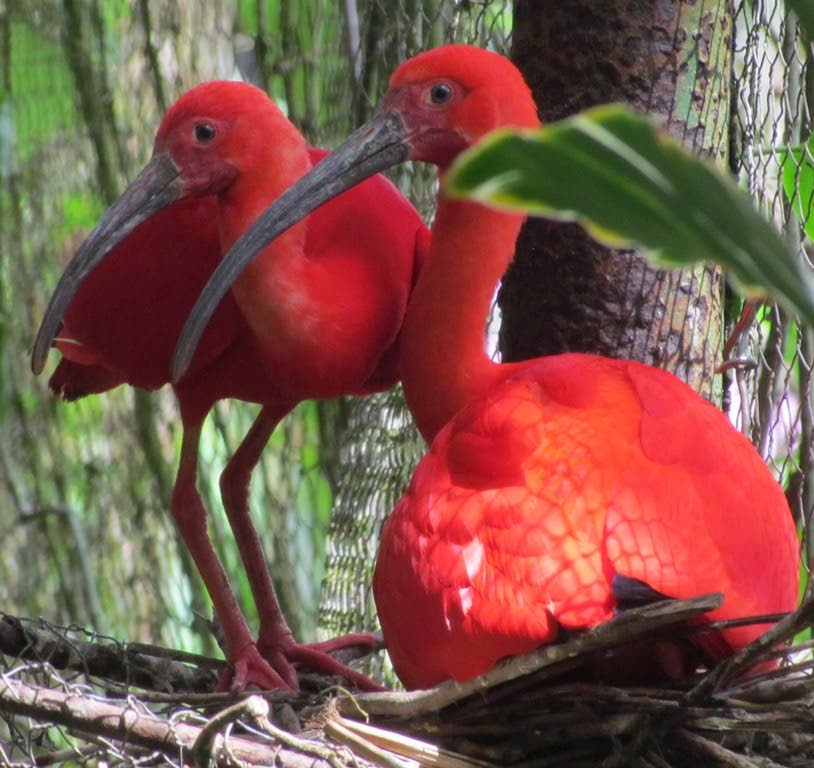On the nation’s 55th Independence anniversary

A few weeks ago, I was chatting with a niece. Let’s put her into context. This is a young girl of mixed descent – law graduate. We were discussing beauty pageants and wear.
Amidst a talk that wandered here and there she asked, “What is our Miss World representative going to wear for her talent piece?”
“Well, supposedly something that represents Trinidad,” I replied.
“What do you mean something that represents Trinidad? Isn’t she taking herself? Isn’t that enough? I never understand these foolish things people do to ‘represent’ Trinidad.”
“I understand, but you see it’s a matter of being politically correct,” I replied. “What do you mean politically correct? Nonsense! She is Trinidadian isn’t she? How much more politically correct are you going to get?” That was it. But I wonder, how many of the younger generation share her view? If so, then we are lucky.
In his column last week Sunday, Professor Ramesh Deosaran placed a question before us –”Is patriotism dead?” He was speaking about the killing and selling of the meat of the scarlet ibis, our national bird. To continue that offering (a column is hardly a place where one can fully explore an argument. Instead we put before the public bite-sized ideas to think about), I place my own views.
The killing of the scarlet ibis is an atrocious act. My first reaction is one of annoyance–indignation at people’s disregard for the environment. Second comes the thought about lawlessness. But that too, is about a lack of respect. Throwing garbage in the river or loud music on a quiet Sunday would rankle me because these acts represent a disregard for others. For me, it’s about responsibility and consideration for the community in which you live for your littering affects everyone. This is another type of patriotism though, one that is too long to discuss here, but we can call it communal patriotism. In many cases, the killing of the scarlet ibis is about economic gain. And there are people who buy, as Professor Deosaran noted. So there are a couple of guilty parties, neither of which, I would surmise, has cast a thought about whether his actions are unpatriotic.
For this is not about patriotism.
It is about our understanding of civic duties and responsibility. But let’s take “civic” out of it for that too implies a sense of citizenship, which inevitably references nationalism. So, rather than patriotism, our education should instead focus on cultivating a sense of social responsibility in future generations. That would entail for instance, a deeper care for the space in which they live and cultivating a sense of respect for others. This education is a slow process because it will necessitate the development of a sense of belonging to the world at large. But it is worth the time. While this may be unrealistic, so is world peace, but we still try.
In a previous age when the native people’s dependence on the environment would have inspired more care for it, in contemporary times, technology and imported goods have taken over the focus on environment.
The scarlet ibis, for instance, now becomes just another aspect of state property, another “thing,” protected by law. So, over time, the bird became an abstract legal entity without a background story. Killing and selling the meat of the ibis, therefore, in a sense, represents the irrelevance of the icon to the larger population.
The question that arises is are we, in any way, emotionally connected to this idea of the national bird unless you are a nationalist or an environmentalist for instance? Because patriotism is partly emotional and people are generally loyal to something with which they feel a deep emotional connection.
To make matters worse, the world is open to us. Social media and the Internet have changed the way that we now interact. Our natural tendency is movement and as a diasporic people we have always looked outward.
So the question of patriotism to the state is a dead one. How many of us would choose to stay here should we be given the open invitation to migrate to the US or UK or Canada without the visa hassle?
This discussion of patriotism runs a lot deeper than my brief outline. It requires more discussion than a single column can explore. As a diasporic people we have always been in the fluid position to script our own version of nationalism and patriotism. So, I put before the reader some preliminary questions: How are we to define ourselves? Perhaps as that young niece asked “Isn’t her ‘self’ enough?” Why are we still placing emphasis on terms like nationalism and patriotism? Congratulations to all on our 55th Independence anniversary!
May we move from strength to strength.

Comments
"On the nation’s 55th Independence anniversary"